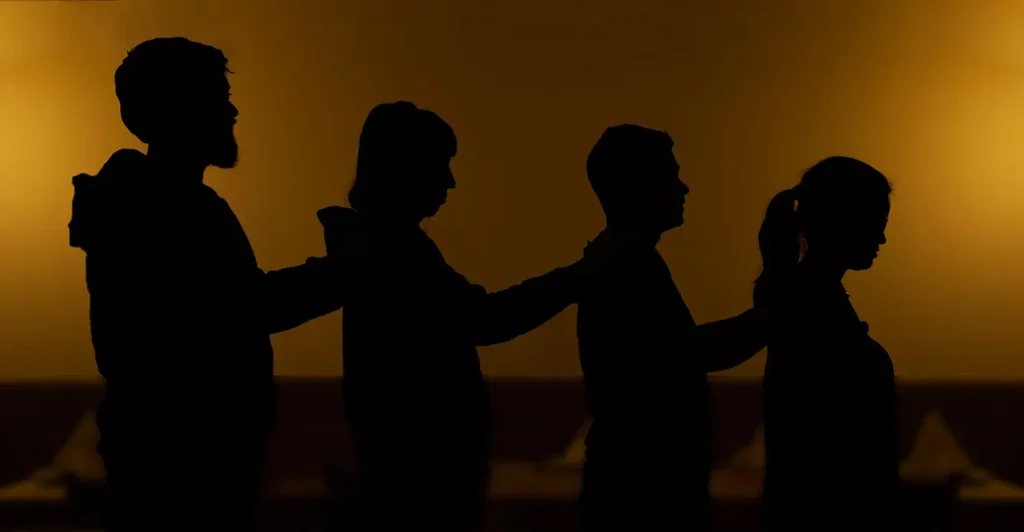When the first dark dining restaurant opened its doors in 1999 in Paris, offering the unique experience of eating in total darkness, soon enough, more such initiatives followed suit, with establishments popping up across North America, the Middle East, and Asia.
“Tenebris”, the Sofia blind date
“Tenebris,” the first dark dining restaurant in the Balkans, is also a rare example of social innovation aimed at helping people with disabilities get jobs. Restaurant guests are greeted by their blind host. Here, guests without visual impairments must rely on support as they plunge into the darkness. Food aside, there’s a valuable opportunity to understand what people with disabilities are going through daily and hopefully be more attentive to their needs.
As the party progresses to their table, one of the customers takes hold of the host’s shoulders. And the rest of the company lines up behind him on their way into the unknown. The group walks between tables; voices can be heard here and there. Once the group reaches the dining hall – Did that take a moment or ten minutes? Hard to tell as one rapidly loses sense of time in the dark – the host sets out the rules by sharing the restaurant’s motto: “Bring a dose of courage, adventurous spirit, and an empty stomach. Let us serve you a different experience of food and people.”




The menu is shrouded in mystery on purpose. As guests sit down for dinner, they are unaware of what they will be served because people are known to “feel” the taste of food more intensely when they do not know what they are eating. Five courses later, with a choice between meat, fish, seafood, or vegetarian, back in the light, guests are finally presented with the menu so they can check for themselves how many of the dishes they consumed they were able to recognize while eating in total darkness.
Dining in the dark: Paris, Berlin, Sofia
The owner visited a similar restaurant in Germany years ago, and the idea appealed to him.
“I came out a changed person, I can boldly say. I didn’t have any particular expectations. It was an intimate experience with myself. When they’re gone, the phones distract you. The conversations in the company are on a whole other level,” says Plamen Veselinov, one of the four owners, at the opening of Tenebris. According to him, only 10% of visitors in the dark can recognize the food they are eating. Even more curiously, they lose track of time and space. There are “record holders” who have spent more than three and a half hours in the pleasant atmosphere.
The owner is more than satisfied that there are many blind applicants for restaurant jobs. Special training is given to identify the most suitable. We sincerely believe that visually impaired people are complete individuals; he is adamant that they have their strengths and weaknesses. He specifies that Tenebris is not a place for donations but a workplace where visually impaired people are in their own waters, stronger and more relaxed than others. The goal of the creation of “Telebris” is more than clear – to show society that these people are in no way inferior to the sighted and can position themselves exceptionally well in the labor market.
Solutions, not events
However, Ivanka Kazakova, chairwoman of a regional organization of the Union of the Disabled in Bulgaria, is of a different opinion. “I am already tired of talking about problems. To repeat the same thing. For example, the construction of an accessible and architectural environment, in line with the needs of people with disabilities,” she tells 3Seas Europe.
Miglena Penkova, a social worker at the Centre for Rehabilitation of Visually Impaired Persons in Shumen, adds: “The lack of employment and funding for national employment programs is another problem for the communities we serve. On top of that, it takes a very long time for someone to be certified as a person with a disability. In some cases, it takes years, which puts additional stress on these people.”







